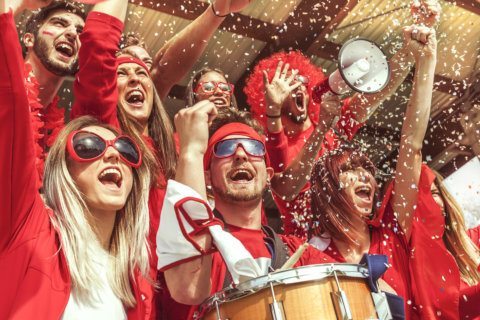The NCAA, which represents some 1,100 schools and more than 500,000 athletes, is no stranger to lawsuits. It has been in court off and on since the early 1980s defending the amateur athlete model at the heart of college sports.
But the organization has suffered a string of losses in court, highlighted by a 9-0 decision from the Supreme Court in 2021 in which justices ruled that the NCAA cannot limit education-related benefits colleges offer their athletes. In a blistering concurring opinion in the case, Justice Brett Kavanaugh suggested the organization may be violating antitrust law.
The House case
House vs. the NCAA is a class-action lawsuit in the Northern District of California before federal Judge Claudia Wilken, whose previous rulings in NCAA cases paved the way for college athletes to profit from their fame and for schools to direct more money into their hands.
Legal experts warned that an NCAA loss in this case would upend college athletics as we know it and they were right. The NCAA and the nation’s biggest conferences decided in May to settle the allegations for $2.8 billion and move toward some form of athlete revenue-sharing of all those billions from television deals for big-time college football and March Madness basketball.
Details of the settlement were released Friday. The proposal would potentially settle some other antitrust claims, including:
— A case in California whose plaintiffs include Duke football player Dewayne Carter, TCU basketball player Sedona Prince and Stanford soccer player Nya Harrison. It seeks to bar the NCAA from enforcing any rules that prohibit athlete compensation.
— Hubbard vs. the NCAA, which seeks damages for athletes who were denied education-related stipends that were the result of the Alston case. The plaintiffs include former Oklahoma State running back Chuba Hubbard and former Auburn track athlete Keira McCarrell, and the lawsuit seeks triple damages for all current and former Division I athletes as far back as 2018.
— A similar lawsuit seeking to lift NCAA rules on compensation from schools and conferences filed in federal court by former Colorado football player Alex Fontenot in November 2023. A judge has ruled the case should remain in Colorado.
The biggest question for the NCAA should the House settlement be approved is securing assurance from Congress that it will not be dragged back into court over the same issues by future college athletes. In July, for example, more than a dozen former college basketball players sued the NCAA and the major conferences for unspecified damages, they are profiting from the unauthorized use of their names, images and likenesses (NIL) in promoting and monetizing the March Madness tournament.
Are athletes school employees?
College athletes whose efforts primarily benefit their schools may qualify as employees deserving of pay under federal wage-and-hour laws, a U.S. appeals court ruled in July. The case — filed by former Villanova football player Trey Johnson and others seeking hourly wages similar to those earned in work-study programs — has been sent back to a judge to start the daunting task of trying to determine a way to differentiate between students who play college sports for fun and those whose effort “crosses the legal line into work.”
There also are multiple issues in front of the National Labor Relations Board, including a complaint against USC and the Pac-12; a unionization effort by the men’s basketball team at Dartmouth; and an unfair labor complaint against Notre Dame.
All of this could lead to college athletes being granted employee status, though court battles are assured. The Dartmouth team voted 13-2 to form a union, though many steps are ahead.
The NCAA and its member schools have insisted they do not consider athletes employees who can collectively bargain for pay and benefits. In fact, the House settlement plan suggests the plan could be subject to change if collective bargaining is allowed for college athletes.
Is NIL compensation a settled issue?
No, though the writing seems to be on the wall with the House case and other developments. The attorneys general of Tennessee and Virginia filed a federal lawsuit that challenged the NCAA’s NIL rules after it was revealed the University of Tennessee was among schools facing potential infractions penalties. A judge Feb. 23 granted a preliminary injunction against the NIL rules and said they likely violate antitrust law.
Athletes free to transfer
Even though the NCAA in recent years had eased some of its transfer limits, multiple states and the Justice Department went to court earlier this year, saying the NCAA’s one-year delay in the eligibility of undergraduate, second-time transfers in Division I violates antitrust law. In May, the NCAA and the states announced a settlement allowing athletes to be immediately eligible to play no matter how many times they transfer and offer some who were sidelined an extra year of eligibility.
___
AP college football: https://apnews.com/hub/college-football
Copyright © 2024 The Associated Press. All rights reserved. This material may not be published, broadcast, written or redistributed.





